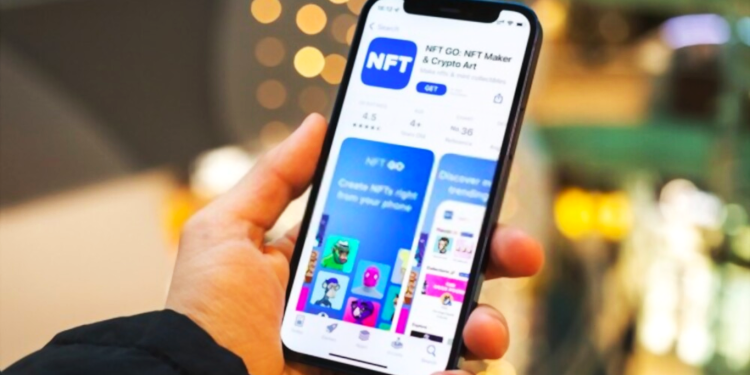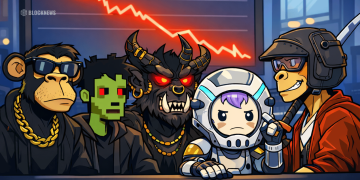Apple has welcomed non-fungible tokens (NFT), artists, and collectors to sell their digital collectibles on its app store. The invitation extends to all apps that sell NFTs, allowing Apple device users to install and sell their digital collectibles on App Store.
Conditions for use
As one of the biggest tech companies globally, Apple has finally decided to accept NFT apps and games on its App Store. The announcement encourages developers of current applications to sell NFTs within their apps. In the same way, new apps can integrate NFTs as part of their offerings. Nonetheless, the opportunity comes with a catch- Apple gets a 30% cut on every transaction.
The commission is shocking, as classical NFT marketplaces such as OpenSea and Magic Eden take a 5% cut. The popular sentiment is that 30% is over the top, and project developers, apps, and game owners are shunning away from this revolutionary feature.
According to Gabriel Leydon, a renowned Web3.0 CEO, the situation comes with a cheerful touch. In his opinion, the 30% cut Apple demands comes with the possibility of having an ETH wallet in every mobile game, attracting over one billion players. He says:
“I will HAPPILY give Apple a 30% cut of a free NFT.”
Beyond the 30% commission, Apple also specified that it only takes payment in traditional fiat currencies, not crypto. This condition is a challenge to many as only a few projects support it.
Consequently, some projects have started pulling back from Apple’s App Store, citing overly stringent policies. Magic Eden was the first to decline, and despite Apple proposing a reduced commission of only 15%, the famed marketplace still fell.
Could this be Apple’s first step into the block?
Apple has never been a player in the crypto or NFT spaces, making this new provision a watershed moment for the company and Apple users. Apple’s only involvement is that its devices support crypto wallets and exchanges like Metamask, Coinbase, and Binance.
Another mention of Apple’s involvement with blockchain is when Disney recruited an ex-Apple official to lead their Metaverse Creative Strategy. In June, rumors spread about Apple launching NFT trading cards at one of their developers’ events, but this never materialized.
Whether this is Apple’s gateway into crypto, NFTs, and the metaverse remains to be seen. Even so, their firmness in not accepting crypto payments suggests otherwise and explains why most blockchain players will not pounce on the new provision on App Store.
Hackers exploit Apple IDs to steal NFTs.
In a related story, news of NFTs hacks involving users’ Apple IDs have spread. According to the communication, users’ NFTs stored in their MetaMask wallets were stolen as threat actors hacked into their individual Apple IDs.
The threat attackers affected their loot by calling or emailing a user and pretending to be a company representative.
If the Apple user fell for it, the caller would ask them to reset their Apple ID password. With this knowledge, the caller would steal their NFTs and other digital collectibles from the user’s MetaMask mobile app.














